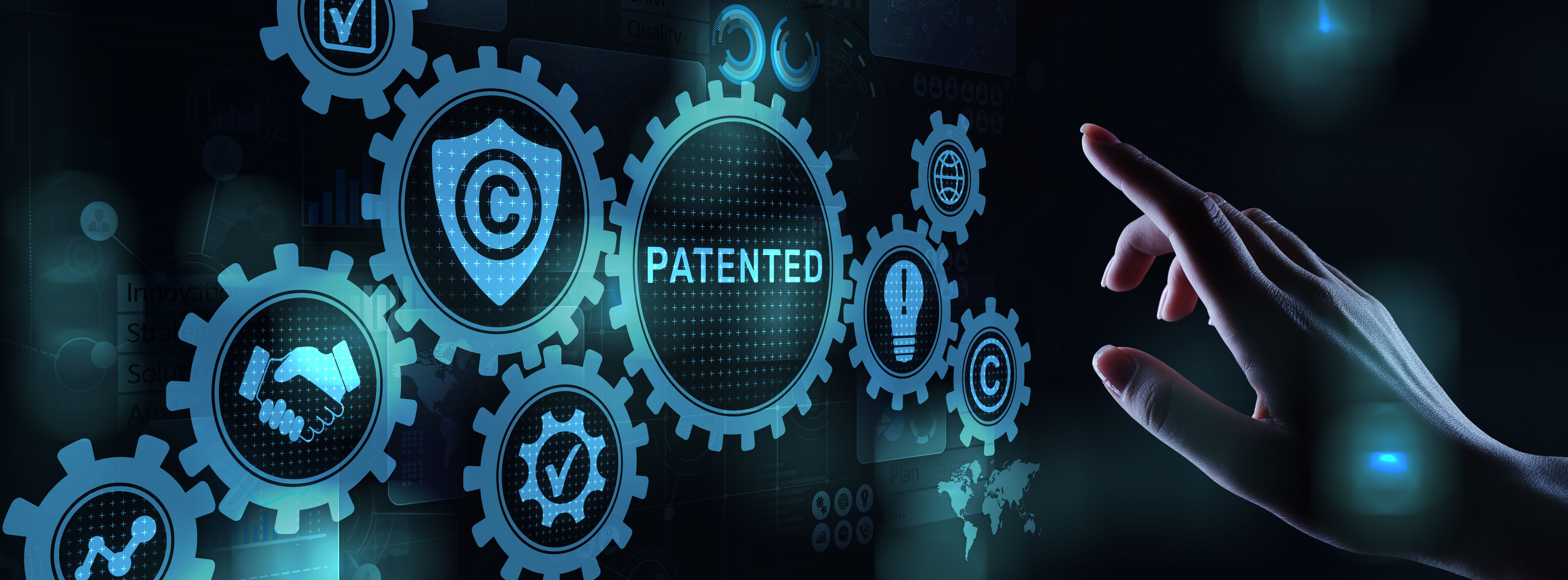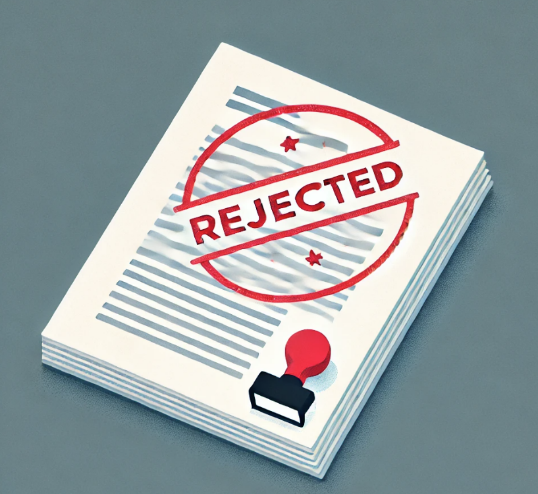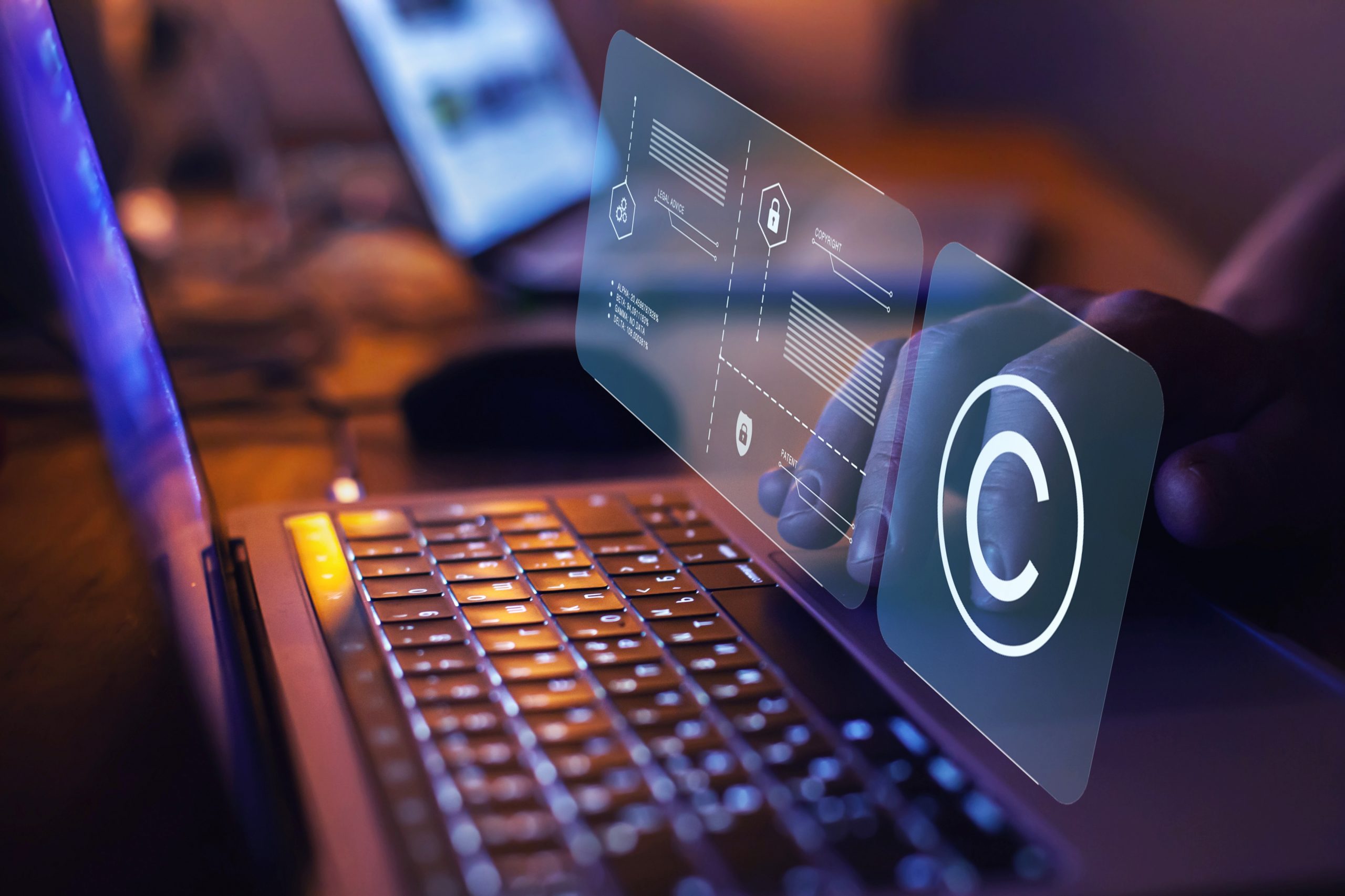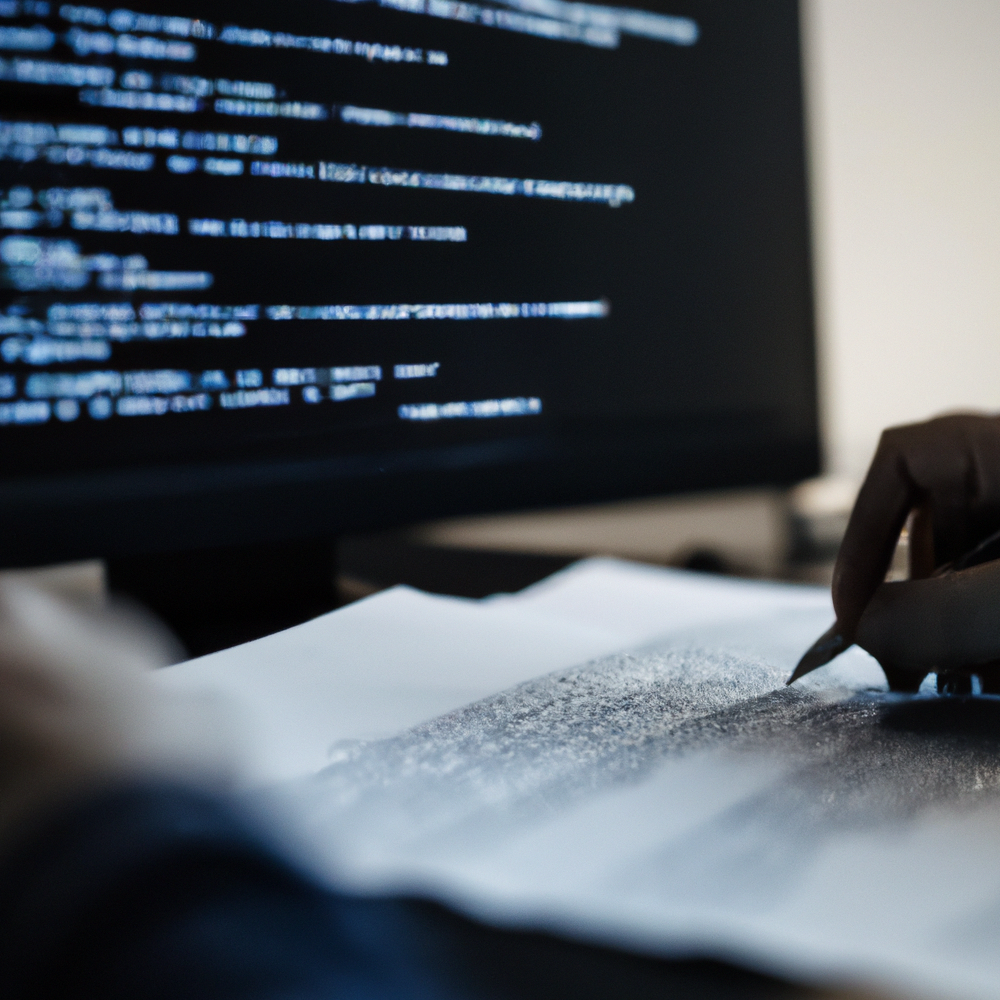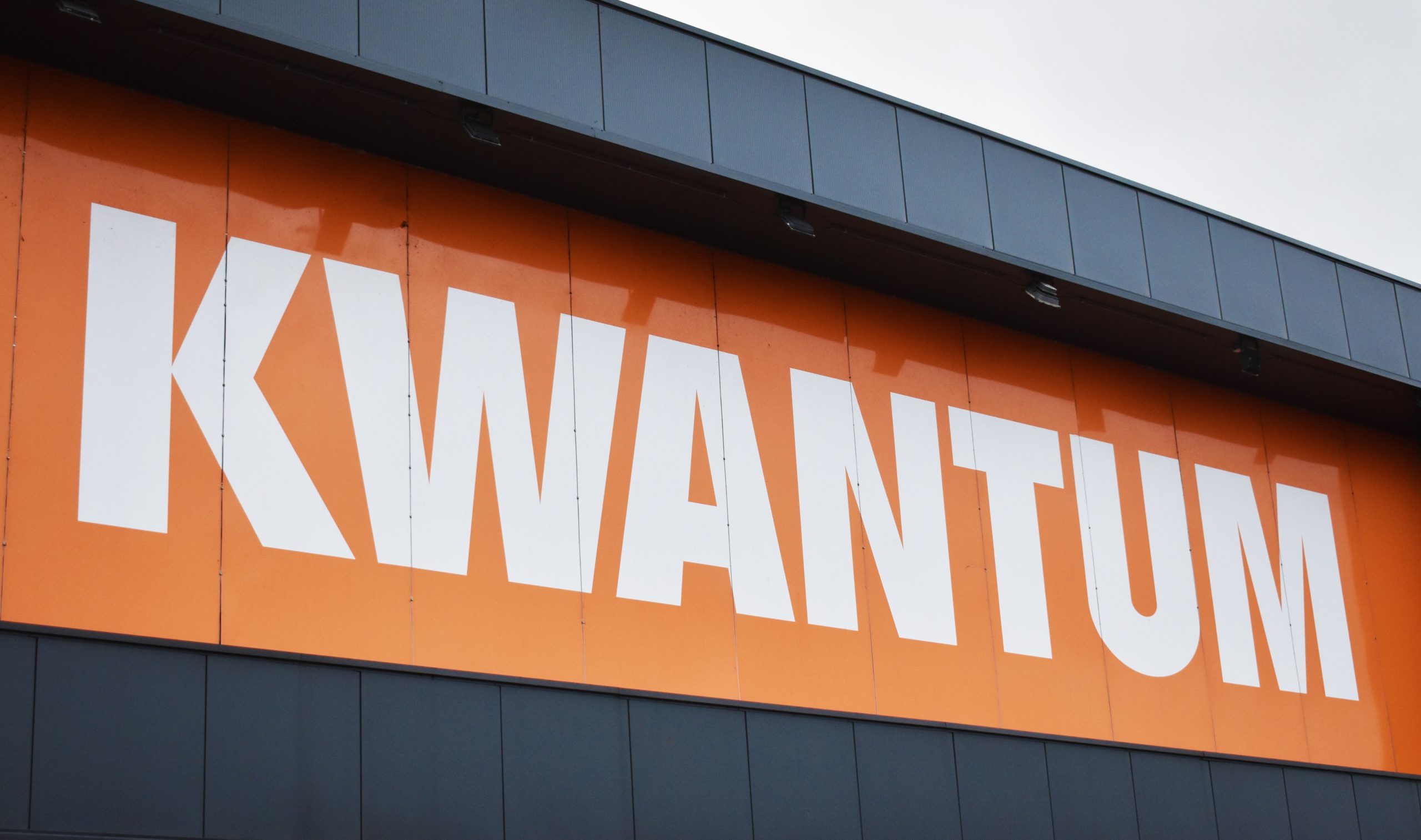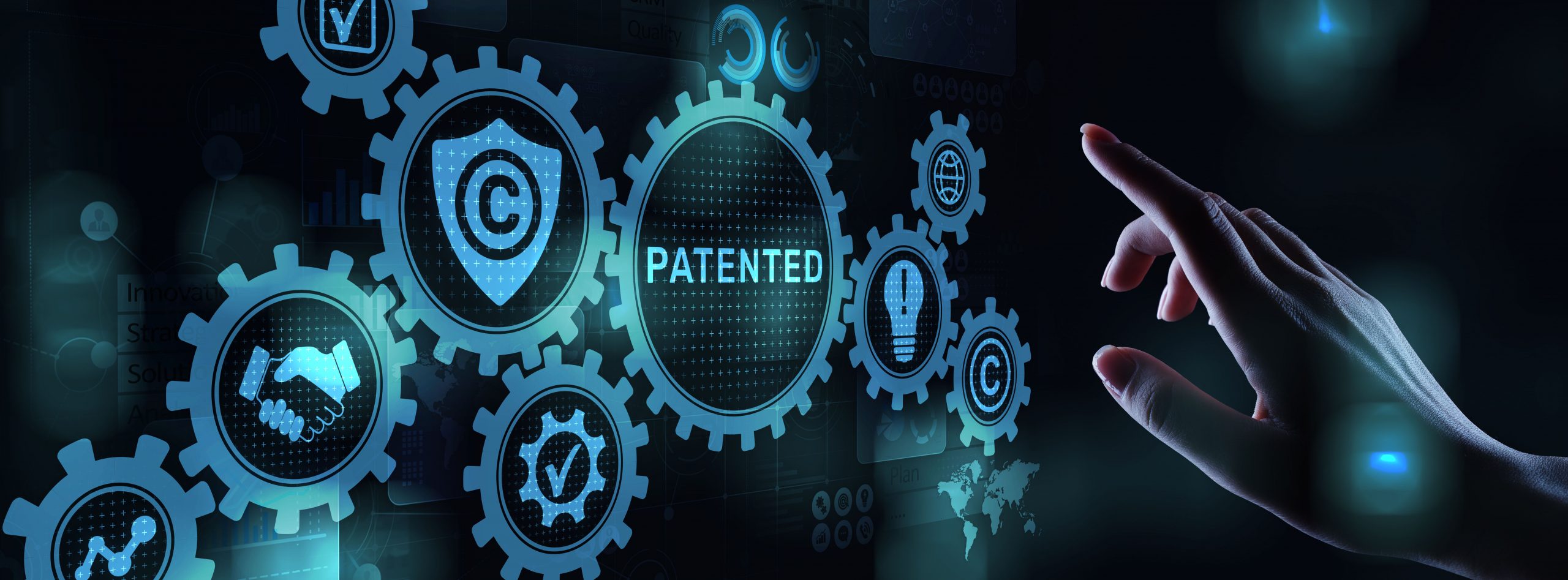WP_Query Object
(
[query] => Array
(
[news-type] => blog-en
)
[query_vars] => Array
(
[news-type] => blog-en
[error] =>
[m] =>
[p] => 0
[post_parent] =>
[subpost] =>
[subpost_id] =>
[attachment] =>
[attachment_id] => 0
[name] =>
[pagename] =>
[page_id] => 0
[second] =>
[minute] =>
[hour] =>
[day] => 0
[monthnum] => 0
[year] => 0
[w] => 0
[category_name] =>
[tag] =>
[cat] =>
[tag_id] =>
[author] =>
[author_name] =>
[feed] =>
[tb] =>
[paged] => 0
[meta_key] =>
[meta_value] =>
[preview] =>
[s] =>
[sentence] =>
[title] =>
[fields] => all
[menu_order] =>
[embed] =>
[category__in] => Array
(
)
[category__not_in] => Array
(
)
[category__and] => Array
(
)
[post__in] => Array
(
)
[post__not_in] => Array
(
)
[post_name__in] => Array
(
)
[tag__in] => Array
(
)
[tag__not_in] => Array
(
)
[tag__and] => Array
(
)
[tag_slug__in] => Array
(
)
[tag_slug__and] => Array
(
)
[post_parent__in] => Array
(
)
[post_parent__not_in] => Array
(
)
[author__in] => Array
(
)
[author__not_in] => Array
(
)
[search_columns] => Array
(
)
[meta_query] => Array
(
)
[ignore_sticky_posts] =>
[suppress_filters] =>
[cache_results] => 1
[update_post_term_cache] => 1
[update_menu_item_cache] =>
[lazy_load_term_meta] => 1
[update_post_meta_cache] => 1
[post_type] =>
[posts_per_page] => 10
[nopaging] =>
[comments_per_page] => 50
[no_found_rows] =>
[taxonomy] => news-type
[term] => blog-en
[order] => DESC
)
[tax_query] => WP_Tax_Query Object
(
[queries] => Array
(
[0] => Array
(
[taxonomy] => news-type
[terms] => Array
(
[0] => blog-en
)
[field] => slug
[operator] => IN
[include_children] => 1
)
)
[relation] => AND
[table_aliases:protected] => Array
(
[0] => wp_term_relationships
)
[queried_terms] => Array
(
[news-type] => Array
(
[terms] => Array
(
[0] => blog-en
)
[field] => slug
)
)
[primary_table] => wp_posts
[primary_id_column] => ID
)
[meta_query] => WP_Meta_Query Object
(
[queries] => Array
(
)
[relation] =>
[meta_table] =>
[meta_id_column] =>
[primary_table] =>
[primary_id_column] =>
[table_aliases:protected] => Array
(
)
[clauses:protected] => Array
(
)
[has_or_relation:protected] =>
)
[date_query] =>
[queried_object] => WP_Term Object
(
[term_id] => 71
[name] => Blog
[slug] => blog-en
[term_group] => 0
[term_taxonomy_id] => 71
[taxonomy] => news-type
[description] =>
[parent] => 0
[count] => 94
[filter] => raw
)
[queried_object_id] => 71
[request] => SELECT SQL_CALC_FOUND_ROWS wp_posts.ID
FROM wp_posts LEFT JOIN wp_term_relationships ON (wp_posts.ID = wp_term_relationships.object_id) LEFT JOIN wp_icl_translations wpml_translations
ON wp_posts.ID = wpml_translations.element_id
AND wpml_translations.element_type = CONCAT('post_', wp_posts.post_type)
WHERE 1=1 AND (
wp_term_relationships.term_taxonomy_id IN (71)
) AND ((wp_posts.post_type = 'post' AND (wp_posts.post_status = 'publish' OR wp_posts.post_status = 'acf-disabled' OR wp_posts.post_status = 'tribe-ea-success' OR wp_posts.post_status = 'tribe-ea-failed' OR wp_posts.post_status = 'tribe-ea-schedule' OR wp_posts.post_status = 'tribe-ea-pending' OR wp_posts.post_status = 'tribe-ea-draft'))) AND ( ( ( wpml_translations.language_code = 'en' OR (
wpml_translations.language_code = 'nl'
AND wp_posts.post_type IN ( 'attachment' )
AND ( (
( SELECT COUNT(element_id)
FROM wp_icl_translations
WHERE trid = wpml_translations.trid
AND language_code = 'en'
) = 0
) OR (
( SELECT COUNT(element_id)
FROM wp_icl_translations t2
JOIN wp_posts p ON p.id = t2.element_id
WHERE t2.trid = wpml_translations.trid
AND t2.language_code = 'en'
AND (
p.post_status = 'publish' OR p.post_status = 'private' OR
( p.post_type='attachment' AND p.post_status = 'inherit' )
)
) = 0 ) )
) ) AND wp_posts.post_type IN ('post','page','attachment','wp_block','wp_template','wp_template_part','wp_navigation','our_sector','our_rechtsgebieden','acf-field-group','tribe_venue','tribe_organizer','tribe_events','mc4wp-form','slider-data','actualiteiten','accordion','failissementens','advocaten','blogs','seminar','juridisch-medewerker','backoffice','rechtsgebied-detail' ) ) OR wp_posts.post_type NOT IN ('post','page','attachment','wp_block','wp_template','wp_template_part','wp_navigation','our_sector','our_rechtsgebieden','acf-field-group','tribe_venue','tribe_organizer','tribe_events','mc4wp-form','slider-data','actualiteiten','accordion','failissementens','advocaten','blogs','seminar','juridisch-medewerker','backoffice','rechtsgebied-detail' ) )
GROUP BY wp_posts.ID
ORDER BY wp_posts.menu_order, wp_posts.post_date DESC
LIMIT 0, 10
[posts] => Array
(
[0] => WP_Post Object
(
[ID] => 45137
[post_author] => 65
[post_date] => 2025-06-05 16:48:35
[post_date_gmt] => 2025-06-05 14:48:35
[post_content] => Brüksel Temyiz Mahkemesi yakın zamanda “GRATIS” kelime markasının Benelüks marka siciline kaydedilip kaydedilemeyeceği sorusunu ele aldı. Davacı, Türk şirketi GRATIS IC VE DIS TICARET A.S., temizlik ürünleri (sınıf 3), farmasötik ürünler (sınıf 5), ev eşyaları (sınıf 21) ve giyim (sınıf 25) dahil olmak üzere geniş bir ürün ve hizmet yelpazesi için “gratis” logosunu marka olarak tescil ettirmeye çalışmıştı.

Mahkemenin Değerlendirmeleri
Benelüks Fikri Mülkiyet Ofisi (BOIP), bu başvuruyu markanın salt açıklayıcı olması (madde 2.11(1)(b) BCIP) ve ayırt edici niteliğinin bulunmaması (madde 2.11(1)(c) BCIP) gerekçesiyle reddetti. BOIP’ye göre “gratis” kelimesi yalnızca bir ürün veya hizmetin ücretsiz doğasına işaret eder ve ticari kökeni belirtmeye hizmet etmez.
Mahkeme, bu ret gerekçelerinin doğru uygulanıp uygulanmadığını değerlendirirken Avrupa içtihatlarına dayandı. Bu içtihatlara göre, tescil için gerekli en düşük düzey bir ayırt edicilik yeterli olsa da, bu her işaretin kaydedilebileceği anlamına gelmez. Temyiz Mahkemesi, “gratis” kelimesinin Fransızca ve Hollandacada yalnızca “ücretsiz” anlamına geldiğini ve ticarette yaygın olarak bir promosyon terimi olarak kullanıldığını belirledi. Ortalama tüketici için bu kelime yalnızca mal veya hizmetin bir özelliğine atıfta bulunur, ticari kökenine değil.
Mahkeme ayrıca markanın grafik sunumuna da baktı. İşaret, mor renkli bir dikdörtgenin içinde blok harflerle “gratis” kelimesiyle sunulmuştu. Mahkeme, bu grafik unsurların çok banal ve dekoratif olduğunu ve ayırt edici niteliğe yeterince katkıda bulunmadığını belirtti. Hayal gücü veya özgün bir unsur kombinasyonu yoktu; bu nedenle grafik tasarım kendi başına ayırt edici değildi.
Son olarak, GRATIS markanın en azından parfümler ve kozmetikler gibi belirli bazı ürün ve hizmetler için tescil edilmesi gerektiğini savundu. Bu savunma da reddedildi. Mahkemeye göre, “gratis” kelimesi bu kategorilerde de açıklayıcı veya ayırt edici değildir, çünkü yalnızca bu ürünlerin ücretsiz sunulduğunu veya verildiğini ifade eder.
Karar
Temyiz Mahkemesi bu nedenle BOIP’in reddini onadı. Karar, ticarette salt açıklayıcı olan kelimelerin, basit grafik unsurlar eklense bile marka koruması almayacağını vurgulamaktadır. Marka koruması elde etmek isteyen şirketler, ayırt edici ve özgün işaretler sağlamalıdır.
Ayrıca bu karar, ürün veya hizmet listesinin daraltılmasının, başvurulan markanın temelde ayırt edici olmadığı durumlarda fark yaratmadığını göstermektedir. GRATIS’in davası reddedildi. Bu dava, dikkatli bir marka stratejisinin ve markanın ayırt ediciliğinin eleştirel bir şekilde değerlendirilmesinin önemini ortaya koymaktadır.
Hereby the English version.
 [post_title] => urt Dışında Bilinir, Benelüks’te Tescil Edilmiyor
[post_excerpt] =>
[post_status] => publish
[comment_status] => open
[ping_status] => open
[post_password] =>
[post_name] => urt-disinda-bilinir-benelukste-tescil-edilmiyor
[to_ping] =>
[pinged] =>
[post_modified] => 2025-06-05 16:48:35
[post_modified_gmt] => 2025-06-05 14:48:35
[post_content_filtered] =>
[post_parent] => 0
[guid] => https://bg.legal/?p=45137
[menu_order] => 0
[post_type] => post
[post_mime_type] =>
[comment_count] => 0
[filter] => raw
)
[1] => WP_Post Object
(
[ID] => 45135
[post_author] => 65
[post_date] => 2025-06-05 16:40:25
[post_date_gmt] => 2025-06-05 14:40:25
[post_content] => In a recent decision, the Brussels Court of Appeal considered whether the logo “GRATIS” could be registered as a
[post_title] => urt Dışında Bilinir, Benelüks’te Tescil Edilmiyor
[post_excerpt] =>
[post_status] => publish
[comment_status] => open
[ping_status] => open
[post_password] =>
[post_name] => urt-disinda-bilinir-benelukste-tescil-edilmiyor
[to_ping] =>
[pinged] =>
[post_modified] => 2025-06-05 16:48:35
[post_modified_gmt] => 2025-06-05 14:48:35
[post_content_filtered] =>
[post_parent] => 0
[guid] => https://bg.legal/?p=45137
[menu_order] => 0
[post_type] => post
[post_mime_type] =>
[comment_count] => 0
[filter] => raw
)
[1] => WP_Post Object
(
[ID] => 45135
[post_author] => 65
[post_date] => 2025-06-05 16:40:25
[post_date_gmt] => 2025-06-05 14:40:25
[post_content] => In a recent decision, the Brussels Court of Appeal considered whether the logo “GRATIS” could be registered as a trademark in the Benelux trademark register. The plaintiff, the Turkish company GRATIS IC VE DIS TICARET A.S., had attempted to register the “gratis” logo as a trademark for a wide range of goods and services, including cleaning products (class 3), pharmaceutical products (class 5), household goods (class 21), and clothing (class 25).

Court’s considerations
The Benelux Office for Intellectual Property (BOIP) refused this registration because the mark was considered purely descriptive (Art. 2.11(1)(b) BCIP) and lacked distinctiveness (Art. 2.11(1)(c) BCIP). According to the BOIP, the word “gratis” only refers to the free nature of a product or service and does not serve to indicate commercial origin.
The court assessed whether these grounds for refusal were correctly applied, basing its reasoning on established European case law. According to this case law, even a minimal degree of distinctiveness is sufficient to allow registration, but that does not mean that any sign can be registered. The Court of Appeal found that the word “gratis” simply means “free of charge” in French and Dutch and is commonly used in commerce as a promotional term. For the average consumer, this word thus refers solely to a characteristic of the goods or services and not to their commercial origin.
The court also looked at the graphical presentation of the mark. The mark was presented in purple, with the word “gratis” in block letters within a purple rectangle. The court ruled that these graphic elements were too banal and decorative and did not sufficiently contribute to distinctiveness. There was no imaginative or original combination of elements, so the graphic design was not distinctive on its own.
Finally, GRATIS argued that the mark should at least be registered for a limited number of goods and services, such as perfumes and cosmetics. That argument was also rejected. According to the court, the word “gratis” remains descriptive or non-distinctive even for these categories, as it merely indicates that the products are provided or offered free of charge.
Decision
The Court of Appeal therefore upheld the BOIP’s refusal. The ruling emphasizes that words purely descriptive in commerce do not receive trademark protection, even if simple graphic elements are added. Companies seeking trademark protection must ensure that they use distinctive and original signs.
Moreover, the judgment shows that narrowing the list of goods or services makes no difference if the applied-for mark is fundamentally non-distinctive. GRATIS’s claim was dismissed. This case highlights the importance of a careful trademark strategy and critically assessing a mark’s distinctiveness before applying.
Hereby the Dutch version.
 [post_title] => Known abroad, refused trademark in the Benelux
[post_excerpt] =>
[post_status] => publish
[comment_status] => open
[ping_status] => open
[post_password] =>
[post_name] => known-abroad-refused-trademark-in-the-benelux
[to_ping] =>
[pinged] =>
[post_modified] => 2025-06-05 16:40:25
[post_modified_gmt] => 2025-06-05 14:40:25
[post_content_filtered] =>
[post_parent] => 0
[guid] => https://bg.legal/?p=45135
[menu_order] => 0
[post_type] => post
[post_mime_type] =>
[comment_count] => 0
[filter] => raw
)
[2] => WP_Post Object
(
[ID] => 44604
[post_author] => 65
[post_date] => 2025-02-25 14:49:37
[post_date_gmt] => 2025-02-25 13:49:37
[post_content] => Many entrepreneurs submit
[post_title] => Known abroad, refused trademark in the Benelux
[post_excerpt] =>
[post_status] => publish
[comment_status] => open
[ping_status] => open
[post_password] =>
[post_name] => known-abroad-refused-trademark-in-the-benelux
[to_ping] =>
[pinged] =>
[post_modified] => 2025-06-05 16:40:25
[post_modified_gmt] => 2025-06-05 14:40:25
[post_content_filtered] =>
[post_parent] => 0
[guid] => https://bg.legal/?p=45135
[menu_order] => 0
[post_type] => post
[post_mime_type] =>
[comment_count] => 0
[filter] => raw
)
[2] => WP_Post Object
(
[ID] => 44604
[post_author] => 65
[post_date] => 2025-02-25 14:49:37
[post_date_gmt] => 2025-02-25 13:49:37
[post_content] => Many entrepreneurs submit a trademark application themselves at the Benelux Office for Intellectual Property (BOIP) or the European Union Intellectual Property Office (EUIPO). Although this may seem straightforward, applications are sometimes rejected. This can have negative consequences for protecting your business. Fortunately, a rejection does not always mean the end of your trademark application. With the right legal support, a solution may still be possible.
A trademark application can be rejected for various reasons. Often, a trademark lacks sufficient distinctive character, making it not unique enough to receive protection. Descriptive terms are also refused. It is essential to clearly specify which products and/or services the trademark will be used for in the application. Finally, certain symbols may be rejected if they conflict with public order or good morals.
What if someone objects to your trademark?
Even if your trademark application is initially approved, another trademark owner may oppose. This occurs through an opposition procedure, where it is assessed whether your trademark could cause confusion with a previously registered trademark. This is a legal process and requires a well-founded defense. Without the right expertise, you risk having your trademark application rejected after all, which could cost you time and money. Therefore, it is wise to seek assistance in opposition procedures.
What can you do if your trademark application is rejected or opposed?
If your trademark application has been rejected or if opposition has been filed against your trademark, it is crucial to act quickly and correctly. In many cases, you can appeal the rejection by submitting additional arguments or evidence. Sometimes, it is possible to modify your application, for example, by adjusting the classification of products and services. During an ongoing opposition procedure, you can present a defense to demonstrate that there is no risk of confusion between your trademark and the previously registered one.
Trademark law is complex, and a rejection can have significant consequences for your business operations. Therefore, it is smart to enlist a specialist who can assist you. With the right strategy, you increase the chances of a successful registration and avoid legal complications.
Has your trademark application been rejected, or are you facing an opposition procedure? Contact Mustafa Kahya.
 [post_title] => Why is my trademark application rejected?
[post_excerpt] =>
[post_status] => publish
[comment_status] => open
[ping_status] => open
[post_password] =>
[post_name] => why-is-my-trademark-application-rejected
[to_ping] =>
[pinged] =>
[post_modified] => 2025-02-25 14:49:37
[post_modified_gmt] => 2025-02-25 13:49:37
[post_content_filtered] =>
[post_parent] => 0
[guid] => https://bg.legal/?p=44604
[menu_order] => 0
[post_type] => post
[post_mime_type] =>
[comment_count] => 0
[filter] => raw
)
[3] => WP_Post Object
(
[ID] => 44347
[post_author] => 65
[post_date] => 2025-01-09 10:30:09
[post_date_gmt] => 2025-01-09 09:30:09
[post_content] =>
[post_title] => Why is my trademark application rejected?
[post_excerpt] =>
[post_status] => publish
[comment_status] => open
[ping_status] => open
[post_password] =>
[post_name] => why-is-my-trademark-application-rejected
[to_ping] =>
[pinged] =>
[post_modified] => 2025-02-25 14:49:37
[post_modified_gmt] => 2025-02-25 13:49:37
[post_content_filtered] =>
[post_parent] => 0
[guid] => https://bg.legal/?p=44604
[menu_order] => 0
[post_type] => post
[post_mime_type] =>
[comment_count] => 0
[filter] => raw
)
[3] => WP_Post Object
(
[ID] => 44347
[post_author] => 65
[post_date] => 2025-01-09 10:30:09
[post_date_gmt] => 2025-01-09 09:30:09
[post_content] => Telif hakkı, tekstil sektörü gibi endüstrilerde kritik bir hak olarak öne çıkar. Tasarlanan birçok baskı, tasarım ve desen telif hakkıyla korunmaktadır. Telif hakkı ihlallerini önlemek için dikkate alınması gereken birkaç önemli husus bulunmaktadır.
Telif hakkı sahibi
Telif hakkı sahibinin kim olduğunu belirlemek, özellikle uluslararası konularda haklarınızı savunmak için önemli bir rol oynar. Çoğu durumda, eserin ilk yaratıcısı telif hakkı sahibidir, ancak telif hakkı devredilmişse durum değişebilir.
Telif hakkı devri
Örneğin Türkiye’den bir şirketin Hollanda’da telif hakkı iddiasında bulunmak istemesi durumunda, iyi hazırlanmış sözleşmeler son derece önemlidir. Özellikle sınır ötesi konularda, ülkeler arasındaki yasal farklılıklar karmaşıklık yaratabilir. Bern Konvansiyonu[1], üye ülkelerde koruma sağlasa da, ayrıntılar genellikle ulusal yasalar ve düzenlemelerle belirlenir. Bu nedenle, sözleşmelerde telif hakkı sahibinin kim olduğu, devrin koşulları ve hangi hukukun geçerli olduğu açıkça belirtilmelidir.
Hollanda yasalarına göre, telif hakkı yalnızca bir yazılı sözleşmeyle (akitle) devredilebilir. Bu akit, telif hakkının geçerli bir şekilde devredilmesi için belirli gereklilikleri karşılamalıdır. Eğer akit doğru bir şekilde hazırlanmazsa, telif hakkının devredilmediği sonucu ortaya çıkabilir. Bu durumda, telif hakkı sahibi olarak tanınmadığınız için yaptırım uygulayamayabilirsiniz.
Örnek
Bir Türk tekstil şirketi, piyasaya sunduğu çeşitli giysilerde kullanılan bir tasarım üzerinde telif hakkı iddia etmiştir. Mahkeme kararında[2], Türk tekstil şirketinin "Design" tasarımı üzerindeki telif hakkının meşru sahibi olduğunu kanıtlayamadığı önemli bir konu olarak öne çıkmıştır. Şirket, telif hakkının ilk tasarımcı tarafından devredildiğini iddia etmiş olsa da, sunulan belgeler yeterince net veya eksiksiz değildi.
Telif hakkını kimin devrettiği, hangi hakların tam olarak devredildiği ve devrin hangi hukuk çerçevesinde gerçekleştiği konusunda kesin bir kanıt bulunmamaktaydı. Ayrıca, belgelerdeki "ticari haklar" ve "endüstriyel tasarım" gibi terimler yeterince spesifik olmadığı için devredilen hakların gerçekten tam bir telif hakkını kapsayıp kapsamadığı belirsizdi. Sonuç olarak, Türk tekstil şirketi, telif hakkı sahibi olduğunu ikna edici bir şekilde gösteremedi; bu da yaptırım uygulama için bir ön koşuldur.
Sonuç
Telif hakkı, tasarımları korumak için tekstil sektöründe esastır. İhlalleri etkili bir şekilde ele almak için, telif hakkı sahibinin kim olduğu net olmalı ve devir işlemleri hukuken geçerli olmalıdır. Hollanda’da bir akit gereklidir. Bir uygulama örneği, bir Türk tekstil şirketinin belirsiz belgeler nedeniyle haklarını savunamadığını göstermektedir. Bu durum, telif haklarını korumak ve uygulamak için iyi hazırlanmış sözleşmelerin önemini vurgulamaktadır.
[1] Edebi ve Sanatsal Eserlerin Korunmasına İlişkin Bern Sözleşmesi (1971 Paris Akti).
[2] Karar Hollandaca olarak (link); ECLI:NL:RBGEL:2023:7484.
Hereby the English version.
 [post_title] => Sınır Ötesi telif hakkı anlaşmazlıkları: iyi bir sözleşme birçok sorunu önleyebilir
[post_excerpt] =>
[post_status] => publish
[comment_status] => open
[ping_status] => open
[post_password] =>
[post_name] => sinir-otesi-telif-hakki-anlasmazliklari-iyi-bir-sozlesme-bircok-sorunu-onleyebilir
[to_ping] =>
[pinged] =>
[post_modified] => 2025-01-09 10:41:59
[post_modified_gmt] => 2025-01-09 09:41:59
[post_content_filtered] =>
[post_parent] => 0
[guid] => https://bg.legal/?p=44347
[menu_order] => 0
[post_type] => post
[post_mime_type] =>
[comment_count] => 0
[filter] => raw
)
[4] => WP_Post Object
(
[ID] => 44345
[post_author] => 65
[post_date] => 2025-01-09 10:10:22
[post_date_gmt] => 2025-01-09 09:10:22
[post_content] => Copyright is a crucial right in industries such as the textile sector. Many prints, designs, and patterns that are created are protected by copyright. To prevent copyright infringement, there are several important aspects to consider.
[post_title] => Sınır Ötesi telif hakkı anlaşmazlıkları: iyi bir sözleşme birçok sorunu önleyebilir
[post_excerpt] =>
[post_status] => publish
[comment_status] => open
[ping_status] => open
[post_password] =>
[post_name] => sinir-otesi-telif-hakki-anlasmazliklari-iyi-bir-sozlesme-bircok-sorunu-onleyebilir
[to_ping] =>
[pinged] =>
[post_modified] => 2025-01-09 10:41:59
[post_modified_gmt] => 2025-01-09 09:41:59
[post_content_filtered] =>
[post_parent] => 0
[guid] => https://bg.legal/?p=44347
[menu_order] => 0
[post_type] => post
[post_mime_type] =>
[comment_count] => 0
[filter] => raw
)
[4] => WP_Post Object
(
[ID] => 44345
[post_author] => 65
[post_date] => 2025-01-09 10:10:22
[post_date_gmt] => 2025-01-09 09:10:22
[post_content] => Copyright is a crucial right in industries such as the textile sector. Many prints, designs, and patterns that are created are protected by copyright. To prevent copyright infringement, there are several important aspects to consider.
The copyright holder
Determining who the copyright holder is plays a significant role in enforcing your rights, especially in international matters. In most cases, the original creator is the copyright holder unless the copyright has been transferred.
Transfer of copyright
When a company, for example from Türkiye, wants to assert copyright in the Netherlands, well-drafted contracts are of paramount importance. Particularly in cross-border issues, the legal differences between countries can create complexity. The Berne Convention[1] provides protection in member countries, but national laws and regulations often govern the specifics. Therefore, it is crucial for contracts to clearly specify who the copyright holder is, the conditions of the transfer, and the applicable law.
Under Dutch law, copyright can only be transferred by means of a deed. This deed must also meet specific requirements for the copyright transfer to be valid. If the deed is not properly drafted, the result may be that the copyright is not transferred. Consequently, you may not be able to take enforcement actions because you are not recognized as the copyright holder.
Example
A Turkish textile company claimed copyright on a design used in various garments it brought to market. In a court ruling[2], a key issue was that the Turkish textile company could not demonstrate that it was the rightful owner of the copyright on the "Design." Although the company claimed that the copyright had been transferred by the original designer, the attached documents were insufficiently clear or incomplete.
There was no conclusive evidence about who had transferred the copyright, which rights had been transferred exactly, and under which jurisdiction the transfer had taken place. Additionally, it was unclear whether the transferred rights actually included full copyright, as terms like "commercial rights" and "industrial design" in the documents were not specific enough. As a result, the Turkish textile company could not convincingly demonstrate that it was the copyright holder, which is a prerequisite for enforcement actions.
Conclusion
Copyright is essential in the textile industry to protect designs. To effectively address infringements, it must be clear who the copyright holder is, and transfers must be legally valid. In the Netherlands, a deed is required. A practical example illustrates how a Turkish textile company was unable to enforce its rights due to unclear documentation. This underscores the importance of well-drafted contracts to protect and enforce copyright.
[1] The Berne Convention for the Protection of Literary and Artistic Works (the Paris Act of 1971).
[2] The judgment in Dutch (link); ECLI:NL:RBGEL:2023:7484.
Hereby the Turkish version.
 [post_title] => Cross-border copyright disputes: a good agreement can prevent many problems
[post_excerpt] =>
[post_status] => publish
[comment_status] => open
[ping_status] => open
[post_password] =>
[post_name] => cross-border-copyright-disputes-a-good-agreement-can-prevent-many-problems
[to_ping] =>
[pinged] =>
[post_modified] => 2025-01-09 10:40:46
[post_modified_gmt] => 2025-01-09 09:40:46
[post_content_filtered] =>
[post_parent] => 0
[guid] => https://bg.legal/?p=44345
[menu_order] => 0
[post_type] => post
[post_mime_type] =>
[comment_count] => 0
[filter] => raw
)
[5] => WP_Post Object
(
[ID] => 43906
[post_author] => 26
[post_date] => 2024-11-05 16:30:07
[post_date_gmt] => 2024-11-05 15:30:07
[post_content] => Can
[post_title] => Cross-border copyright disputes: a good agreement can prevent many problems
[post_excerpt] =>
[post_status] => publish
[comment_status] => open
[ping_status] => open
[post_password] =>
[post_name] => cross-border-copyright-disputes-a-good-agreement-can-prevent-many-problems
[to_ping] =>
[pinged] =>
[post_modified] => 2025-01-09 10:40:46
[post_modified_gmt] => 2025-01-09 09:40:46
[post_content_filtered] =>
[post_parent] => 0
[guid] => https://bg.legal/?p=44345
[menu_order] => 0
[post_type] => post
[post_mime_type] =>
[comment_count] => 0
[filter] => raw
)
[5] => WP_Post Object
(
[ID] => 43906
[post_author] => 26
[post_date] => 2024-11-05 16:30:07
[post_date_gmt] => 2024-11-05 15:30:07
[post_content] => Can copyright protection for applied art, such as designer furniture, be applied within the European Union to products originating from non-EU countries? This question was answered by the European court in a lawsuit between the Swiss furniture manufacturer Vitra and the Dutch retail chain Kwantum.
Vitra vs Kwantum
Vitra claims intellectual property rights, including copyright, to a chair it made to the design of American Charles and Ray Eames. Kwantum has marketed a chair that Vitra says is very similar to its own. As a result, according to Vitra, Kwantum is infringing its copyright. The court in the first instance rejected Vitra's claims, but on appeal they were actually upheld. Following this, Kwantum appealed in cassation, after which questions were put to the European Court by the Supreme Court.
European vs national copyright law
The issue revolved around whether European member states may use the Berne Convention's so-called “reciprocity test.” This test means that works of applied art from countries that offer only design protection (such as the United States) are not automatically entitled to copyright protection in other countries. Vitra argued that this test should not apply because it is inconsistent with Union law as set forth in the European Copyright Directive (2001/29/EC). On the contrary, Kwantum wants to invoke the reciprocity test.
Judgment of the European Court
The European Court ruled that the European Copyright Directive (2001/29/EC) takes precedence over the Berne Convention. This means that member states may not impose additional limitations based on the reciprocity test. If a work of applied art within the EU can be considered a “work” under the Copyright Directive, this protection applies regardless of the country of origin or nationality of the author. The Court emphasized that only the EU legislature can impose limitations on the rights under this directive.
Conclusion
With this, the Court makes it clear that works of applied art, such as the Charles and Ray Eames chair, also enjoy copyright protection within the EU, even if they originate from a non-EU country such as the United States. Member States cannot apply national rules that conflict with European law in this area. European law is leading, especially when it comes to copyright harmonization within the EU single market.
Want to know more about protecting your products? Contact our experts!
Hereby the Dutch version.
[post_title] => Vitra v. Kwantum: copyright protection for applied art within the EU
[post_excerpt] =>
[post_status] => publish
[comment_status] => open
[ping_status] => open
[post_password] =>
[post_name] => vitra-v-kwantum-copyright-protection-for-applied-art-within-the-eu
[to_ping] =>
[pinged] =>
[post_modified] => 2025-06-06 12:22:17
[post_modified_gmt] => 2025-06-06 10:22:17
[post_content_filtered] =>
[post_parent] => 0
[guid] => https://bg.legal/?p=43906
[menu_order] => 0
[post_type] => post
[post_mime_type] =>
[comment_count] => 0
[filter] => raw
)
[6] => WP_Post Object
(
[ID] => 43804
[post_author] => 65
[post_date] => 2024-10-21 12:12:15
[post_date_gmt] => 2024-10-21 10:12:15
[post_content] => Hollanda'da faaliyet göstermeyi planlayan startup'lar için, fikri mülkiyetinizi (FM) korumak çok önemlidir. Yenilikçilik ve yaratıcılık genellikle işinizin merkezinde yer alır ve doğru koruma olmadan, rakipleriniz bu fikirlerden faydalanabilir. Bu rehberde, FM'nin neden startup'lar için önemli olduğunu ve Hollanda’da FM'nizi nasıl koruyabileceğinize dair pratik ipuçlarını paylaşıyoruz.
1. Startuplar için FM'nin önemi
FM'nizi korumak, şirketinize rekabet avantajı sağlar. Yenilikleriniz, markalarınız ve yaratımlarınız üzerinde size özel haklar tanır ve başkalarının bunları izinsiz kopyalamasını veya kullanmasını engeller. Bu, özellikle Hollanda gibi rekabetçi bir pazarda büyük bir değere sahip olabilir.
Ayrıca, iyi korunan FM, yatırımcılar için startup'ınızı daha cazip hale getirir. Yatırımcılar, varlıklarını düzgün bir şekilde güvence altına almış şirketlere değer verirler çünkü bu, uzun vadeli istikrarı ve büyümeyi destekleyebilir. Ayrıca, FM’nizi lisanslayarak işletmeniz için yeni gelir kaynakları yaratabilirsiniz.
2. Hollanda’da FM Koruma İpuçları
Erken başlayın: Fikirlerinizi veya markanızı korumak için çok uzun süre beklemeyin. FM’nizi kamuoyuna açıklamadan önce güvence altına almak önemlidir, böylece başkalarının eserlerinizi kopyalaması engellenmiş olur.FM stratejinizi işletmenize göre şekillendirin: Her startup için tüm FM koruma türleri aynı derecede önemli değildir. İşletmeniz için hangi hakların kritik olduğunu düşünün; bu, bir marka adını korumak veya teknik bir yeniliği güvence altına almak olabilir.Doğru sözleşmeler yapın: Geliştiriciler, ortaklar veya serbest çalışanlarla işbirliği yapıyorsanız, mülkiyet hakları ve gizlilikle ilgili anlaşmaların her zaman yazılı olarak yapılmasını sağlayın. Bu, kimlerin hangi haklara sahip olduğu konusunda karışıklığı önler.Uluslararası düşünün: Eğer Hollanda dışında uluslararası büyüme hedefleriniz varsa, FM’nizi diğer ülkelerde de koruma sağlamanızı da öneririz. Bu, uluslararası rakiplerin fikirlerinizi veya ürünlerinizi kopyalayıp bu pazarlarda kullanmasını engeller.
3. Yaygın hatalardan kaçının
Koruma için çok geç başlamak: Startupların sık yaptığı hatalardan biri, FM hakları için başvuruda bulunmayı çok geç bırakmaktır. Bu, yeniliklerinizi veya markalarınızı münhasır şekilde sahiplenme fırsatını kaybetmenize neden olabilir.Yazılı anlaşmaların olmaması: İşbirlikleri söz konusu olduğunda sözlü anlaşmalara güvenmeyin. Kimin hangi haklara sahip olduğunu belirten net, yazılı sözleşmeleriniz mutlaka olmalıdır.Uluslararası pazarları ihmal etmek: Başlangıçta Hollanda'ya odaklanıyor olsanız bile, büyümeyi planlıyorsanız uluslararası korumayı da göz önünde bulundurmalısınız. Uluslararası korumanız olmadan, diğer pazarlarda savunmasız kalabilirsiniz.
4. Uzman yardımı almaktan çekinmeyin
FM alanı karmaşık olabilir, özellikle de sınırlı kaynaklara ve yasal bilgiye sahip startup'lar için. Patent vekilleri veya marka avukatları gibi uzmanlardan yardım almak, güçlü bir FM stratejisi oluşturmanıza ve gereksiz risklerden kaçınmanıza yardımcı olabilir.
5. Sonuç
Fikri mülkiyetinizi korumak, Hollanda’da büyümek ve rekabet etmek isteyen her startup için hayati bir adımdır. FM’nizi erken ve stratejik bir şekilde güvence altına alarak, işletmenizin değerini artırabilir, rekabet gücünüzü güçlendirebilir ve şirketinizi gelecekteki büyümeye hazırlayabilirsiniz.
FM’nizi en iyi nasıl koruyabileceğiniz konusunda sorularınız mı var? Startup'ınız için olanaklar hakkında fikir alışverişinde bulunmak üzere
Mustafa Kahya iletişime geçebilirsiniz.
Hereby the English version.

[post_title] => Hollanda’da faaliyet göstermek isteyen startup’lar için fikri mülkiyet
[post_excerpt] =>
[post_status] => publish
[comment_status] => open
[ping_status] => open
[post_password] =>
[post_name] => hollandada-faaliyet-gostermek-isteyen-startuplar-icin-fikri-mulkiyet
[to_ping] =>
[pinged] =>
[post_modified] => 2024-10-21 12:12:15
[post_modified_gmt] => 2024-10-21 10:12:15
[post_content_filtered] =>
[post_parent] => 0
[guid] => https://bg.legal/?p=43804
[menu_order] => 0
[post_type] => post
[post_mime_type] =>
[comment_count] => 0
[filter] => raw
)
[7] => WP_Post Object
(
[ID] => 43802
[post_author] => 65
[post_date] => 2024-10-21 12:07:51
[post_date_gmt] => 2024-10-21 10:07:51
[post_content] => For startups looking to establish themselves in the Netherlands, protecting your
intellectual property (IP) is crucial. Innovation and creativity are often the core of your business, and without the right protection, competitors may take advantage of your ideas. This guide explains why IP is important for startups and offers practical tips on how to protect your IP in the Netherlands.
1. The importance of IP for startups
Protecting your IP gives your company a competitive edge. It grants you exclusive rights to your innovations, brands, and creations, preventing others from copying or using them without permission. This can be especially valuable in a competitive market like the Netherlands.
Moreover, well-protected IP makes your startup more attractive to investors. They value companies that have properly secured their assets, as this can enhance long-term stability and growth. Additionally, licensing your IP can open up new revenue streams for your business.
2. Tips for IP protection in the Netherlands
Start early: Don’t wait too long to protect your ideas or brand. It’s crucial to secure your IP before it becomes public, ensuring that others don’t get the chance to copy your work.Tailor your IP strategy to your business: Not all forms of IP protection are equally important for every startup. Consider what is essential for your business—whether it’s protecting a brand name or safeguarding a technical innovation.Ensure proper contracts: If you’re collaborating with other parties such as developers, partners, or freelancers, always put agreements about ownership rights and confidentiality in writing. This prevents confusion about who owns which rights.Think internationally: If you plan to expand beyond the Netherlands, it’s wise to protect your IP in other countries as well. This prevents international competitors from copying your ideas or products and using them in those markets.
3. Avoid common mistakes
Starting too late with protection: A common mistake is that startups wait too long to apply for IP rights, losing the opportunity to claim exclusive ownership of their innovations or brands.Lack of written agreements: Don’t rely on verbal agreements, especially when it comes to collaborations. Always have clear, written contracts detailing what is agreed upon.Neglecting international markets: Even if you're initially focused on the Netherlands, don’t forget to think internationally if you plan to grow. Without international protection, you may be vulnerable in other markets.
4. Seek expert help early
The IP landscape can be complex, especially for startups with limited resources and legal knowledge. Engaging specialized experts, such as patent attorneys or trademark lawyers, can help you establish a strong IP strategy and avoid unnecessary risks.
5. Conclusion
Protecting your intellectual property is a vital step for any startup looking to grow and compete in the Netherlands. By securing your IP early and strategically, you can increase the value of your business, strengthen your competitive position, and prepare your company for future growth.
Do you have questions about how to best protect your IP? Feel free to contact one of our
experts for an informal discussion about the possibilities for your startup.
Hereby the turkish version.

[post_title] => Intellectual property for startups in the Netherlands
[post_excerpt] =>
[post_status] => publish
[comment_status] => open
[ping_status] => open
[post_password] =>
[post_name] => intellectual-property-for-startups-in-the-netherlands
[to_ping] =>
[pinged] =>
[post_modified] => 2024-10-21 12:13:06
[post_modified_gmt] => 2024-10-21 10:13:06
[post_content_filtered] =>
[post_parent] => 0
[guid] => https://bg.legal/?p=43802
[menu_order] => 0
[post_type] => post
[post_mime_type] =>
[comment_count] => 0
[filter] => raw
)
[8] => WP_Post Object
(
[ID] => 43788
[post_author] => 65
[post_date] => 2024-10-17 13:21:49
[post_date_gmt] => 2024-10-17 11:21:49
[post_content] => Marka ve faydalı model koruması, uluslararası genişlemeyi hedefleyen şirketler için çok önemlidir. Hem Avrupa Ekonomik Alanı (AEA) içinde hem de dışında yer alan şirketler ve marka büroları için BG.legal, Avrupa marka ve faydalı model başvurularında uzmanlık ve destek sunmaktadır.
BG.legal’in Avrupa marka ve faydalı model başvuruları için hizmetleri
AB içinde marka ve faydalı model başvuruları: Avrupa marka ve faydalı model başvurularının yapılması konusunda destek sağlıyoruz.Marka izleme ve yenileme: BG.legal, markaların ve faydalı modellerin ihlallere karşı izlenmesini sağlar ve marka tescillerinin yenilenmesinde yardımcı olur.Uygulama ve ihlal davaları: Avukatlarımız ve vekillerimiz, ihlal durumlarında hızlı bir şekilde harekete geçmektedir.
AEA dışı marka ve faydalı model büroları için destek
AB temsilciliği: AEA dışındaki şirketler, marka ve faydalı model başvuruları için bir Avrupa temsilcisine sahip olmalıdır. BG.legal, hukuki temsilci olarak görev yapar ve şirketleri EUIPO nezdinde temsil eder.Stratejik ortaklık: AEA dışındaki marka ve faydalı model bürolarına, Avrupa'da hukuki meseleler ve marka izleme konusunda destek sağlıyoruz.
Neden BG.legal?
Avrupa marka ve faydalı model hukuku konusunda derin bilgiye sahip, müşteri odaklı ve verimli bir yaklaşım sunuyoruz. İster Avrupa'da markasını korumak isteyen bir şirket olun, ister müşterileriniz için destek arayan bir marka bürosu, BG.legal size özel çözümler sunar.
Markanızı Avrupa'da nasıl koruyabileceğimiz konusunda daha fazla bilgi için
Mustafa Kahya iletişime geçin.
Hereby the english version.

[post_title] => BG.legal: Avrupa marka başvuruları ve Avrupa dışı marka bürolarına destek için ortaklığınız
[post_excerpt] =>
[post_status] => publish
[comment_status] => open
[ping_status] => open
[post_password] =>
[post_name] => bg-legal-avrupa-marka-basvurulari-ve-avrupa-disi-marka-burolarina-destek-icin-ortakliginiz
[to_ping] =>
[pinged] =>
[post_modified] => 2024-10-17 13:21:49
[post_modified_gmt] => 2024-10-17 11:21:49
[post_content_filtered] =>
[post_parent] => 0
[guid] => https://bg.legal/?p=43788
[menu_order] => 0
[post_type] => post
[post_mime_type] =>
[comment_count] => 0
[filter] => raw
)
[9] => WP_Post Object
(
[ID] => 43786
[post_author] => 65
[post_date] => 2024-10-17 13:17:49
[post_date_gmt] => 2024-10-17 11:17:49
[post_content] => Trademark and design protection is crucial for companies aiming to expand internationally. For businesses and trademark agencies, both within and outside the European Economic Area (EEA), BG.legal provides expertise and support for European trademark and design applications.
BG.legal's services for European trademark and design applications
Trademark and design applications within the EU: Assisting with the filing of European trademark and design applications.Trademark monitoring and renewal: BG.legal monitors trademarks for potential infringement and assists with the renewal of trademark registrations.Enforcement and infringement proceedings: Our lawyers and attorneys take swift action in cases of infringement.
Support for non-EEA trademark agencies
EU representation: Non-EEA companies must have a European representative for trademark and design applications. BG.legal acts as a legal representative and represents businesses before the EUIPO.Strategic partnership: We offer non-EEA trademark agencies support with legal matters and trademark monitoring within Europe.
Why choose BG.legal?
We offer a client-focused, efficient approach with in-depth knowledge of European trademark and design law. Whether you are a business looking to protect your brand in Europe or a trademark agency seeking support for your clients, BG.legal provides tailored solutions.
Contact
Mustafa Kahya for more information on how we can protect your brand in Europe.
Hereby the turkish version.

[post_title] => BG.legal: Your partner for European trademark applications and support for non-European trademark agencies
[post_excerpt] =>
[post_status] => publish
[comment_status] => open
[ping_status] => open
[post_password] =>
[post_name] => bg-legal-your-partner-for-european-trademark-applications-and-support-for-non-european-trademark-agencies
[to_ping] =>
[pinged] =>
[post_modified] => 2024-10-17 13:22:13
[post_modified_gmt] => 2024-10-17 11:22:13
[post_content_filtered] =>
[post_parent] => 0
[guid] => https://bg.legal/?p=43786
[menu_order] => 0
[post_type] => post
[post_mime_type] =>
[comment_count] => 0
[filter] => raw
)
)
[post_count] => 10
[current_post] => -1
[before_loop] => 1
[in_the_loop] =>
[post] => WP_Post Object
(
[ID] => 45137
[post_author] => 65
[post_date] => 2025-06-05 16:48:35
[post_date_gmt] => 2025-06-05 14:48:35
[post_content] => Brüksel Temyiz Mahkemesi yakın zamanda “GRATIS” kelime markasının Benelüks marka siciline kaydedilip kaydedilemeyeceği sorusunu ele aldı. Davacı, Türk şirketi GRATIS IC VE DIS TICARET A.S., temizlik ürünleri (sınıf 3), farmasötik ürünler (sınıf 5), ev eşyaları (sınıf 21) ve giyim (sınıf 25) dahil olmak üzere geniş bir ürün ve hizmet yelpazesi için “gratis” logosunu marka olarak tescil ettirmeye çalışmıştı.

Mahkemenin Değerlendirmeleri
Benelüks Fikri Mülkiyet Ofisi (BOIP), bu başvuruyu markanın salt açıklayıcı olması (madde 2.11(1)(b) BCIP) ve ayırt edici niteliğinin bulunmaması (madde 2.11(1)(c) BCIP) gerekçesiyle reddetti. BOIP’ye göre “gratis” kelimesi yalnızca bir ürün veya hizmetin ücretsiz doğasına işaret eder ve ticari kökeni belirtmeye hizmet etmez.
Mahkeme, bu ret gerekçelerinin doğru uygulanıp uygulanmadığını değerlendirirken Avrupa içtihatlarına dayandı. Bu içtihatlara göre, tescil için gerekli en düşük düzey bir ayırt edicilik yeterli olsa da, bu her işaretin kaydedilebileceği anlamına gelmez. Temyiz Mahkemesi, “gratis” kelimesinin Fransızca ve Hollandacada yalnızca “ücretsiz” anlamına geldiğini ve ticarette yaygın olarak bir promosyon terimi olarak kullanıldığını belirledi. Ortalama tüketici için bu kelime yalnızca mal veya hizmetin bir özelliğine atıfta bulunur, ticari kökenine değil.
Mahkeme ayrıca markanın grafik sunumuna da baktı. İşaret, mor renkli bir dikdörtgenin içinde blok harflerle “gratis” kelimesiyle sunulmuştu. Mahkeme, bu grafik unsurların çok banal ve dekoratif olduğunu ve ayırt edici niteliğe yeterince katkıda bulunmadığını belirtti. Hayal gücü veya özgün bir unsur kombinasyonu yoktu; bu nedenle grafik tasarım kendi başına ayırt edici değildi.
Son olarak, GRATIS markanın en azından parfümler ve kozmetikler gibi belirli bazı ürün ve hizmetler için tescil edilmesi gerektiğini savundu. Bu savunma da reddedildi. Mahkemeye göre, “gratis” kelimesi bu kategorilerde de açıklayıcı veya ayırt edici değildir, çünkü yalnızca bu ürünlerin ücretsiz sunulduğunu veya verildiğini ifade eder.
Karar
Temyiz Mahkemesi bu nedenle BOIP’in reddini onadı. Karar, ticarette salt açıklayıcı olan kelimelerin, basit grafik unsurlar eklense bile marka koruması almayacağını vurgulamaktadır. Marka koruması elde etmek isteyen şirketler, ayırt edici ve özgün işaretler sağlamalıdır.
Ayrıca bu karar, ürün veya hizmet listesinin daraltılmasının, başvurulan markanın temelde ayırt edici olmadığı durumlarda fark yaratmadığını göstermektedir. GRATIS’in davası reddedildi. Bu dava, dikkatli bir marka stratejisinin ve markanın ayırt ediciliğinin eleştirel bir şekilde değerlendirilmesinin önemini ortaya koymaktadır.
Hereby the English version.

[post_title] => urt Dışında Bilinir, Benelüks’te Tescil Edilmiyor
[post_excerpt] =>
[post_status] => publish
[comment_status] => open
[ping_status] => open
[post_password] =>
[post_name] => urt-disinda-bilinir-benelukste-tescil-edilmiyor
[to_ping] =>
[pinged] =>
[post_modified] => 2025-06-05 16:48:35
[post_modified_gmt] => 2025-06-05 14:48:35
[post_content_filtered] =>
[post_parent] => 0
[guid] => https://bg.legal/?p=45137
[menu_order] => 0
[post_type] => post
[post_mime_type] =>
[comment_count] => 0
[filter] => raw
)
[comment_count] => 0
[current_comment] => -1
[found_posts] => 94
[max_num_pages] => 10
[max_num_comment_pages] => 0
[is_single] =>
[is_preview] =>
[is_page] =>
[is_archive] => 1
[is_date] =>
[is_year] =>
[is_month] =>
[is_day] =>
[is_time] =>
[is_author] =>
[is_category] =>
[is_tag] =>
[is_tax] => 1
[is_search] =>
[is_feed] =>
[is_comment_feed] =>
[is_trackback] =>
[is_home] =>
[is_privacy_policy] =>
[is_404] =>
[is_embed] =>
[is_paged] =>
[is_admin] =>
[is_attachment] =>
[is_singular] =>
[is_robots] =>
[is_favicon] =>
[is_posts_page] =>
[is_post_type_archive] =>
[query_vars_hash:WP_Query:private] => 8ccacd1686186ee3735173102a219307
[query_vars_changed:WP_Query:private] => 1
[thumbnails_cached] =>
[allow_query_attachment_by_filename:protected] =>
[stopwords:WP_Query:private] =>
[compat_fields:WP_Query:private] => Array
(
[0] => query_vars_hash
[1] => query_vars_changed
)
[compat_methods:WP_Query:private] => Array
(
[0] => init_query_flags
[1] => parse_tax_query
)
[query_cache_key:WP_Query:private] => wp_query:8196b8840edf9fcdcfb91b38844c4b4c:0.73224400 17618255490.02997300 1761825550
[tribe_is_event] =>
[tribe_is_multi_posttype] =>
[tribe_is_event_category] =>
[tribe_is_event_venue] =>
[tribe_is_event_organizer] =>
[tribe_is_event_query] =>
[tribe_is_past] =>
[tribe_controller] => Tribe\Events\Views\V2\Query\Event_Query_Controller Object
(
[filtering_query:Tribe\Events\Views\V2\Query\Event_Query_Controller:private] => WP_Query Object
*RECURSION*
)
)
Brüksel Temyiz Mahkemesi yakın zamanda “GRATIS” kelime markasının Benelüks marka siciline kaydedilip kaydedilemeyeceği sorusunu ele aldı. Davacı, Türk şirketi GRATIS IC VE DIS TICARET A.S., temizlik ürünleri (sınıf 3), farmasötik...
Read more
In a recent decision, the Brussels Court of Appeal considered whether the logo “GRATIS” could be registered as a trademark in the Benelux trademark register. The plaintiff, the Turkish company...
Read more
Many entrepreneurs submit a trademark application themselves at the Benelux Office for Intellectual Property (BOIP) or the European Union Intellectual Property Office (EUIPO). Although this may seem straightforward, applications are...
Read more
Telif hakkı, tekstil sektörü gibi endüstrilerde kritik bir hak olarak öne çıkar. Tasarlanan birçok baskı, tasarım ve desen telif hakkıyla korunmaktadır. Telif hakkı ihlallerini önlemek için dikkate alınması gereken birkaç...
Read more
Copyright is a crucial right in industries such as the textile sector. Many prints, designs, and patterns that are created are protected by copyright. To prevent copyright infringement, there are...
Read more
Can copyright protection for applied art, such as designer furniture, be applied within the European Union to products originating from non-EU countries? This question was answered by the European court...
Read more
Hollanda’da faaliyet göstermeyi planlayan startup’lar için, fikri mülkiyetinizi (FM) korumak çok önemlidir. Yenilikçilik ve yaratıcılık genellikle işinizin merkezinde yer alır ve doğru koruma olmadan, rakipleriniz bu fikirlerden faydalanabilir. Bu rehberde,...
Read more
For startups looking to establish themselves in the Netherlands, protecting your intellectual property (IP) is crucial. Innovation and creativity are often the core of your business, and without the right...
Read more
Marka ve faydalı model koruması, uluslararası genişlemeyi hedefleyen şirketler için çok önemlidir. Hem Avrupa Ekonomik Alanı (AEA) içinde hem de dışında yer alan şirketler ve marka büroları için BG.legal, Avrupa...
Read more
Trademark and design protection is crucial for companies aiming to expand internationally. For businesses and trademark agencies, both within and outside the European Economic Area (EEA), BG.legal provides expertise and...
Read more
 [post_title] => Hollanda’da faaliyet göstermek isteyen startup’lar için fikri mülkiyet
[post_excerpt] =>
[post_status] => publish
[comment_status] => open
[ping_status] => open
[post_password] =>
[post_name] => hollandada-faaliyet-gostermek-isteyen-startuplar-icin-fikri-mulkiyet
[to_ping] =>
[pinged] =>
[post_modified] => 2024-10-21 12:12:15
[post_modified_gmt] => 2024-10-21 10:12:15
[post_content_filtered] =>
[post_parent] => 0
[guid] => https://bg.legal/?p=43804
[menu_order] => 0
[post_type] => post
[post_mime_type] =>
[comment_count] => 0
[filter] => raw
)
[7] => WP_Post Object
(
[ID] => 43802
[post_author] => 65
[post_date] => 2024-10-21 12:07:51
[post_date_gmt] => 2024-10-21 10:07:51
[post_content] => For startups looking to establish themselves in the Netherlands, protecting your
[post_title] => Hollanda’da faaliyet göstermek isteyen startup’lar için fikri mülkiyet
[post_excerpt] =>
[post_status] => publish
[comment_status] => open
[ping_status] => open
[post_password] =>
[post_name] => hollandada-faaliyet-gostermek-isteyen-startuplar-icin-fikri-mulkiyet
[to_ping] =>
[pinged] =>
[post_modified] => 2024-10-21 12:12:15
[post_modified_gmt] => 2024-10-21 10:12:15
[post_content_filtered] =>
[post_parent] => 0
[guid] => https://bg.legal/?p=43804
[menu_order] => 0
[post_type] => post
[post_mime_type] =>
[comment_count] => 0
[filter] => raw
)
[7] => WP_Post Object
(
[ID] => 43802
[post_author] => 65
[post_date] => 2024-10-21 12:07:51
[post_date_gmt] => 2024-10-21 10:07:51
[post_content] => For startups looking to establish themselves in the Netherlands, protecting your  [post_title] => Intellectual property for startups in the Netherlands
[post_excerpt] =>
[post_status] => publish
[comment_status] => open
[ping_status] => open
[post_password] =>
[post_name] => intellectual-property-for-startups-in-the-netherlands
[to_ping] =>
[pinged] =>
[post_modified] => 2024-10-21 12:13:06
[post_modified_gmt] => 2024-10-21 10:13:06
[post_content_filtered] =>
[post_parent] => 0
[guid] => https://bg.legal/?p=43802
[menu_order] => 0
[post_type] => post
[post_mime_type] =>
[comment_count] => 0
[filter] => raw
)
[8] => WP_Post Object
(
[ID] => 43788
[post_author] => 65
[post_date] => 2024-10-17 13:21:49
[post_date_gmt] => 2024-10-17 11:21:49
[post_content] => Marka ve faydalı model koruması, uluslararası genişlemeyi hedefleyen şirketler için çok önemlidir. Hem Avrupa Ekonomik Alanı (AEA) içinde hem de dışında yer alan şirketler ve marka büroları için BG.legal, Avrupa marka ve faydalı model başvurularında uzmanlık ve destek sunmaktadır.
[post_title] => Intellectual property for startups in the Netherlands
[post_excerpt] =>
[post_status] => publish
[comment_status] => open
[ping_status] => open
[post_password] =>
[post_name] => intellectual-property-for-startups-in-the-netherlands
[to_ping] =>
[pinged] =>
[post_modified] => 2024-10-21 12:13:06
[post_modified_gmt] => 2024-10-21 10:13:06
[post_content_filtered] =>
[post_parent] => 0
[guid] => https://bg.legal/?p=43802
[menu_order] => 0
[post_type] => post
[post_mime_type] =>
[comment_count] => 0
[filter] => raw
)
[8] => WP_Post Object
(
[ID] => 43788
[post_author] => 65
[post_date] => 2024-10-17 13:21:49
[post_date_gmt] => 2024-10-17 11:21:49
[post_content] => Marka ve faydalı model koruması, uluslararası genişlemeyi hedefleyen şirketler için çok önemlidir. Hem Avrupa Ekonomik Alanı (AEA) içinde hem de dışında yer alan şirketler ve marka büroları için BG.legal, Avrupa marka ve faydalı model başvurularında uzmanlık ve destek sunmaktadır.
 [post_title] => BG.legal: Avrupa marka başvuruları ve Avrupa dışı marka bürolarına destek için ortaklığınız
[post_excerpt] =>
[post_status] => publish
[comment_status] => open
[ping_status] => open
[post_password] =>
[post_name] => bg-legal-avrupa-marka-basvurulari-ve-avrupa-disi-marka-burolarina-destek-icin-ortakliginiz
[to_ping] =>
[pinged] =>
[post_modified] => 2024-10-17 13:21:49
[post_modified_gmt] => 2024-10-17 11:21:49
[post_content_filtered] =>
[post_parent] => 0
[guid] => https://bg.legal/?p=43788
[menu_order] => 0
[post_type] => post
[post_mime_type] =>
[comment_count] => 0
[filter] => raw
)
[9] => WP_Post Object
(
[ID] => 43786
[post_author] => 65
[post_date] => 2024-10-17 13:17:49
[post_date_gmt] => 2024-10-17 11:17:49
[post_content] => Trademark and design protection is crucial for companies aiming to expand internationally. For businesses and trademark agencies, both within and outside the European Economic Area (EEA), BG.legal provides expertise and support for European trademark and design applications.
[post_title] => BG.legal: Avrupa marka başvuruları ve Avrupa dışı marka bürolarına destek için ortaklığınız
[post_excerpt] =>
[post_status] => publish
[comment_status] => open
[ping_status] => open
[post_password] =>
[post_name] => bg-legal-avrupa-marka-basvurulari-ve-avrupa-disi-marka-burolarina-destek-icin-ortakliginiz
[to_ping] =>
[pinged] =>
[post_modified] => 2024-10-17 13:21:49
[post_modified_gmt] => 2024-10-17 11:21:49
[post_content_filtered] =>
[post_parent] => 0
[guid] => https://bg.legal/?p=43788
[menu_order] => 0
[post_type] => post
[post_mime_type] =>
[comment_count] => 0
[filter] => raw
)
[9] => WP_Post Object
(
[ID] => 43786
[post_author] => 65
[post_date] => 2024-10-17 13:17:49
[post_date_gmt] => 2024-10-17 11:17:49
[post_content] => Trademark and design protection is crucial for companies aiming to expand internationally. For businesses and trademark agencies, both within and outside the European Economic Area (EEA), BG.legal provides expertise and support for European trademark and design applications.
 [post_title] => BG.legal: Your partner for European trademark applications and support for non-European trademark agencies
[post_excerpt] =>
[post_status] => publish
[comment_status] => open
[ping_status] => open
[post_password] =>
[post_name] => bg-legal-your-partner-for-european-trademark-applications-and-support-for-non-european-trademark-agencies
[to_ping] =>
[pinged] =>
[post_modified] => 2024-10-17 13:22:13
[post_modified_gmt] => 2024-10-17 11:22:13
[post_content_filtered] =>
[post_parent] => 0
[guid] => https://bg.legal/?p=43786
[menu_order] => 0
[post_type] => post
[post_mime_type] =>
[comment_count] => 0
[filter] => raw
)
)
[post_count] => 10
[current_post] => -1
[before_loop] => 1
[in_the_loop] =>
[post] => WP_Post Object
(
[ID] => 45137
[post_author] => 65
[post_date] => 2025-06-05 16:48:35
[post_date_gmt] => 2025-06-05 14:48:35
[post_content] => Brüksel Temyiz Mahkemesi yakın zamanda “GRATIS” kelime markasının Benelüks marka siciline kaydedilip kaydedilemeyeceği sorusunu ele aldı. Davacı, Türk şirketi GRATIS IC VE DIS TICARET A.S., temizlik ürünleri (sınıf 3), farmasötik ürünler (sınıf 5), ev eşyaları (sınıf 21) ve giyim (sınıf 25) dahil olmak üzere geniş bir ürün ve hizmet yelpazesi için “gratis” logosunu marka olarak tescil ettirmeye çalışmıştı.
[post_title] => BG.legal: Your partner for European trademark applications and support for non-European trademark agencies
[post_excerpt] =>
[post_status] => publish
[comment_status] => open
[ping_status] => open
[post_password] =>
[post_name] => bg-legal-your-partner-for-european-trademark-applications-and-support-for-non-european-trademark-agencies
[to_ping] =>
[pinged] =>
[post_modified] => 2024-10-17 13:22:13
[post_modified_gmt] => 2024-10-17 11:22:13
[post_content_filtered] =>
[post_parent] => 0
[guid] => https://bg.legal/?p=43786
[menu_order] => 0
[post_type] => post
[post_mime_type] =>
[comment_count] => 0
[filter] => raw
)
)
[post_count] => 10
[current_post] => -1
[before_loop] => 1
[in_the_loop] =>
[post] => WP_Post Object
(
[ID] => 45137
[post_author] => 65
[post_date] => 2025-06-05 16:48:35
[post_date_gmt] => 2025-06-05 14:48:35
[post_content] => Brüksel Temyiz Mahkemesi yakın zamanda “GRATIS” kelime markasının Benelüks marka siciline kaydedilip kaydedilemeyeceği sorusunu ele aldı. Davacı, Türk şirketi GRATIS IC VE DIS TICARET A.S., temizlik ürünleri (sınıf 3), farmasötik ürünler (sınıf 5), ev eşyaları (sınıf 21) ve giyim (sınıf 25) dahil olmak üzere geniş bir ürün ve hizmet yelpazesi için “gratis” logosunu marka olarak tescil ettirmeye çalışmıştı.

 [post_title] => urt Dışında Bilinir, Benelüks’te Tescil Edilmiyor
[post_excerpt] =>
[post_status] => publish
[comment_status] => open
[ping_status] => open
[post_password] =>
[post_name] => urt-disinda-bilinir-benelukste-tescil-edilmiyor
[to_ping] =>
[pinged] =>
[post_modified] => 2025-06-05 16:48:35
[post_modified_gmt] => 2025-06-05 14:48:35
[post_content_filtered] =>
[post_parent] => 0
[guid] => https://bg.legal/?p=45137
[menu_order] => 0
[post_type] => post
[post_mime_type] =>
[comment_count] => 0
[filter] => raw
)
[comment_count] => 0
[current_comment] => -1
[found_posts] => 94
[max_num_pages] => 10
[max_num_comment_pages] => 0
[is_single] =>
[is_preview] =>
[is_page] =>
[is_archive] => 1
[is_date] =>
[is_year] =>
[is_month] =>
[is_day] =>
[is_time] =>
[is_author] =>
[is_category] =>
[is_tag] =>
[is_tax] => 1
[is_search] =>
[is_feed] =>
[is_comment_feed] =>
[is_trackback] =>
[is_home] =>
[is_privacy_policy] =>
[is_404] =>
[is_embed] =>
[is_paged] =>
[is_admin] =>
[is_attachment] =>
[is_singular] =>
[is_robots] =>
[is_favicon] =>
[is_posts_page] =>
[is_post_type_archive] =>
[query_vars_hash:WP_Query:private] => 8ccacd1686186ee3735173102a219307
[query_vars_changed:WP_Query:private] => 1
[thumbnails_cached] =>
[allow_query_attachment_by_filename:protected] =>
[stopwords:WP_Query:private] =>
[compat_fields:WP_Query:private] => Array
(
[0] => query_vars_hash
[1] => query_vars_changed
)
[compat_methods:WP_Query:private] => Array
(
[0] => init_query_flags
[1] => parse_tax_query
)
[query_cache_key:WP_Query:private] => wp_query:8196b8840edf9fcdcfb91b38844c4b4c:0.73224400 17618255490.02997300 1761825550
[tribe_is_event] =>
[tribe_is_multi_posttype] =>
[tribe_is_event_category] =>
[tribe_is_event_venue] =>
[tribe_is_event_organizer] =>
[tribe_is_event_query] =>
[tribe_is_past] =>
[tribe_controller] => Tribe\Events\Views\V2\Query\Event_Query_Controller Object
(
[filtering_query:Tribe\Events\Views\V2\Query\Event_Query_Controller:private] => WP_Query Object
*RECURSION*
)
)
[post_title] => urt Dışında Bilinir, Benelüks’te Tescil Edilmiyor
[post_excerpt] =>
[post_status] => publish
[comment_status] => open
[ping_status] => open
[post_password] =>
[post_name] => urt-disinda-bilinir-benelukste-tescil-edilmiyor
[to_ping] =>
[pinged] =>
[post_modified] => 2025-06-05 16:48:35
[post_modified_gmt] => 2025-06-05 14:48:35
[post_content_filtered] =>
[post_parent] => 0
[guid] => https://bg.legal/?p=45137
[menu_order] => 0
[post_type] => post
[post_mime_type] =>
[comment_count] => 0
[filter] => raw
)
[comment_count] => 0
[current_comment] => -1
[found_posts] => 94
[max_num_pages] => 10
[max_num_comment_pages] => 0
[is_single] =>
[is_preview] =>
[is_page] =>
[is_archive] => 1
[is_date] =>
[is_year] =>
[is_month] =>
[is_day] =>
[is_time] =>
[is_author] =>
[is_category] =>
[is_tag] =>
[is_tax] => 1
[is_search] =>
[is_feed] =>
[is_comment_feed] =>
[is_trackback] =>
[is_home] =>
[is_privacy_policy] =>
[is_404] =>
[is_embed] =>
[is_paged] =>
[is_admin] =>
[is_attachment] =>
[is_singular] =>
[is_robots] =>
[is_favicon] =>
[is_posts_page] =>
[is_post_type_archive] =>
[query_vars_hash:WP_Query:private] => 8ccacd1686186ee3735173102a219307
[query_vars_changed:WP_Query:private] => 1
[thumbnails_cached] =>
[allow_query_attachment_by_filename:protected] =>
[stopwords:WP_Query:private] =>
[compat_fields:WP_Query:private] => Array
(
[0] => query_vars_hash
[1] => query_vars_changed
)
[compat_methods:WP_Query:private] => Array
(
[0] => init_query_flags
[1] => parse_tax_query
)
[query_cache_key:WP_Query:private] => wp_query:8196b8840edf9fcdcfb91b38844c4b4c:0.73224400 17618255490.02997300 1761825550
[tribe_is_event] =>
[tribe_is_multi_posttype] =>
[tribe_is_event_category] =>
[tribe_is_event_venue] =>
[tribe_is_event_organizer] =>
[tribe_is_event_query] =>
[tribe_is_past] =>
[tribe_controller] => Tribe\Events\Views\V2\Query\Event_Query_Controller Object
(
[filtering_query:Tribe\Events\Views\V2\Query\Event_Query_Controller:private] => WP_Query Object
*RECURSION*
)
)
 [post_title] => Why is my trademark application rejected?
[post_excerpt] =>
[post_status] => publish
[comment_status] => open
[ping_status] => open
[post_password] =>
[post_name] => why-is-my-trademark-application-rejected
[to_ping] =>
[pinged] =>
[post_modified] => 2025-02-25 14:49:37
[post_modified_gmt] => 2025-02-25 13:49:37
[post_content_filtered] =>
[post_parent] => 0
[guid] => https://bg.legal/?p=44604
[menu_order] => 0
[post_type] => post
[post_mime_type] =>
[comment_count] => 0
[filter] => raw
)
[3] => WP_Post Object
(
[ID] => 44347
[post_author] => 65
[post_date] => 2025-01-09 10:30:09
[post_date_gmt] => 2025-01-09 09:30:09
[post_content] =>
[post_title] => Why is my trademark application rejected?
[post_excerpt] =>
[post_status] => publish
[comment_status] => open
[ping_status] => open
[post_password] =>
[post_name] => why-is-my-trademark-application-rejected
[to_ping] =>
[pinged] =>
[post_modified] => 2025-02-25 14:49:37
[post_modified_gmt] => 2025-02-25 13:49:37
[post_content_filtered] =>
[post_parent] => 0
[guid] => https://bg.legal/?p=44604
[menu_order] => 0
[post_type] => post
[post_mime_type] =>
[comment_count] => 0
[filter] => raw
)
[3] => WP_Post Object
(
[ID] => 44347
[post_author] => 65
[post_date] => 2025-01-09 10:30:09
[post_date_gmt] => 2025-01-09 09:30:09
[post_content] =>  [post_title] => Sınır Ötesi telif hakkı anlaşmazlıkları: iyi bir sözleşme birçok sorunu önleyebilir
[post_excerpt] =>
[post_status] => publish
[comment_status] => open
[ping_status] => open
[post_password] =>
[post_name] => sinir-otesi-telif-hakki-anlasmazliklari-iyi-bir-sozlesme-bircok-sorunu-onleyebilir
[to_ping] =>
[pinged] =>
[post_modified] => 2025-01-09 10:41:59
[post_modified_gmt] => 2025-01-09 09:41:59
[post_content_filtered] =>
[post_parent] => 0
[guid] => https://bg.legal/?p=44347
[menu_order] => 0
[post_type] => post
[post_mime_type] =>
[comment_count] => 0
[filter] => raw
)
[4] => WP_Post Object
(
[ID] => 44345
[post_author] => 65
[post_date] => 2025-01-09 10:10:22
[post_date_gmt] => 2025-01-09 09:10:22
[post_content] => Copyright is a crucial right in industries such as the textile sector. Many prints, designs, and patterns that are created are protected by copyright. To prevent copyright infringement, there are several important aspects to consider.
[post_title] => Sınır Ötesi telif hakkı anlaşmazlıkları: iyi bir sözleşme birçok sorunu önleyebilir
[post_excerpt] =>
[post_status] => publish
[comment_status] => open
[ping_status] => open
[post_password] =>
[post_name] => sinir-otesi-telif-hakki-anlasmazliklari-iyi-bir-sozlesme-bircok-sorunu-onleyebilir
[to_ping] =>
[pinged] =>
[post_modified] => 2025-01-09 10:41:59
[post_modified_gmt] => 2025-01-09 09:41:59
[post_content_filtered] =>
[post_parent] => 0
[guid] => https://bg.legal/?p=44347
[menu_order] => 0
[post_type] => post
[post_mime_type] =>
[comment_count] => 0
[filter] => raw
)
[4] => WP_Post Object
(
[ID] => 44345
[post_author] => 65
[post_date] => 2025-01-09 10:10:22
[post_date_gmt] => 2025-01-09 09:10:22
[post_content] => Copyright is a crucial right in industries such as the textile sector. Many prints, designs, and patterns that are created are protected by copyright. To prevent copyright infringement, there are several important aspects to consider.
